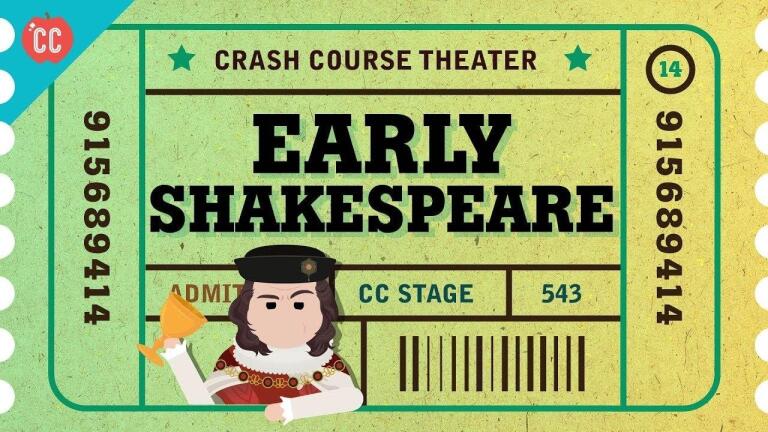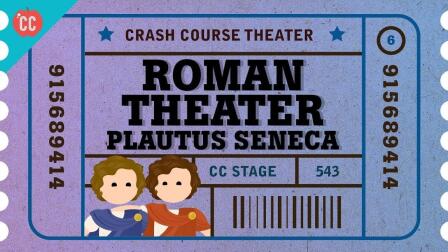Back to Show
Crash Course Theater
Tragedy Lessons from Aristotle
Season 1
Episode 3
Aristotle. He knows a lot, right? And if you choose to believe Aristotle, then you must believe all the mechanics of tragedy that Mike is about to lay on you. This week, we're looking at Aristotle's rules for the basic elements of theater, and how those can be used to bring about catharsis, the emotional release triggered by onstage trauma. You know you love the catharsis.
Support Provided By

10:40
Spain was having kind of a moment in the 16th and 17th centuries.

12:54
In the 1600s, English theater had to go into hiding, from PURITANS. Enter: WOMEN.

11:50
Thanks, Shakespeare! Let's talk about Ben Jonson, revenge tragedies, and court masques.

10:46
Let's take a look at Shakespeare's comedies, romances, problem plays and heroines.

11:29
Shakespeare's tragedies had some jokes, and they changed the way tragedies were written.

10:52
How a young Shakespeare stormed into London's theater – and wrote some pretty good plays.

12:17
Let's take a look at London theater and the playwrights who set the stage for Shakespeare.

10:43
Painting, music, architecture, and plays with fart jokes were all thriving from 1300-1500.

12:20
Noh, and its counterpart Kyogen are some of the most revered theater forms in Japan.

11:10
After European churches changed their minds on theater, drama became an outdoor activity.

11:01
Meet Hrotsvitha: a cool, 10th century nun/playwright who influenced a new era of theater.

11:59
As Christianity rose in the west, theater declined. But it returned – via Catholic Mass!











